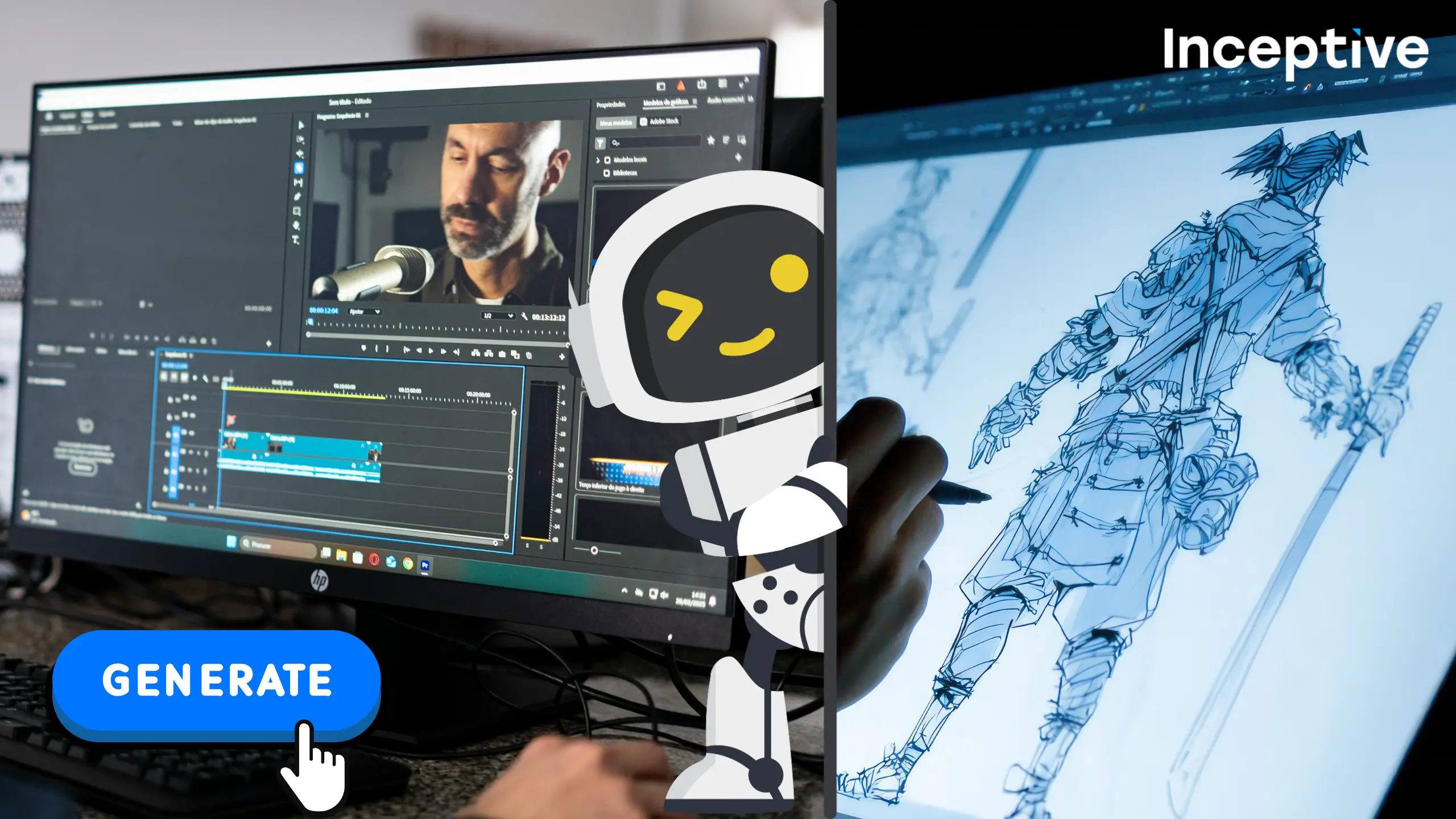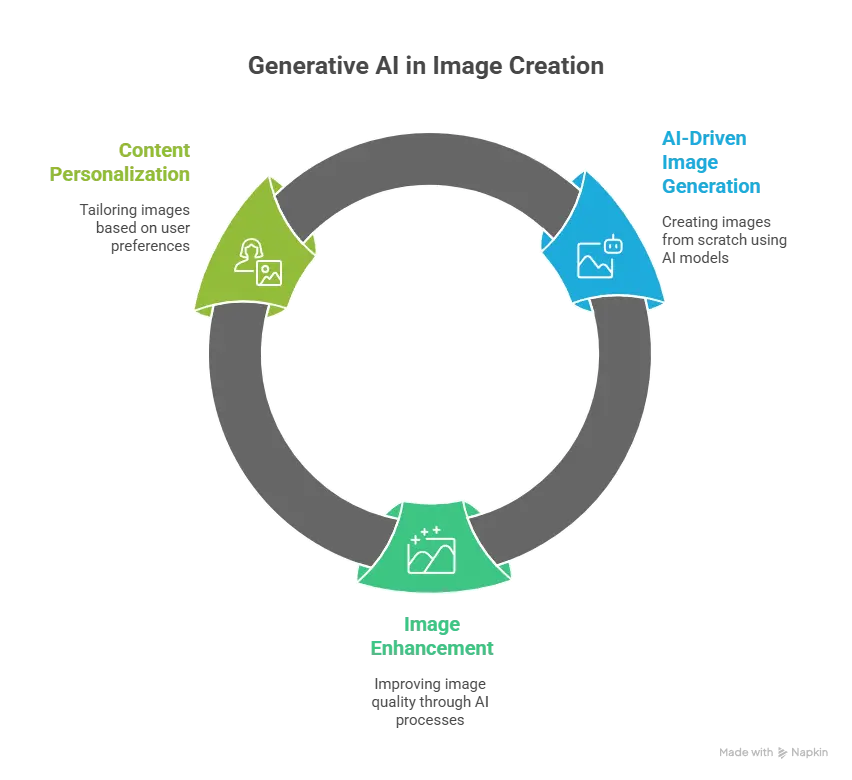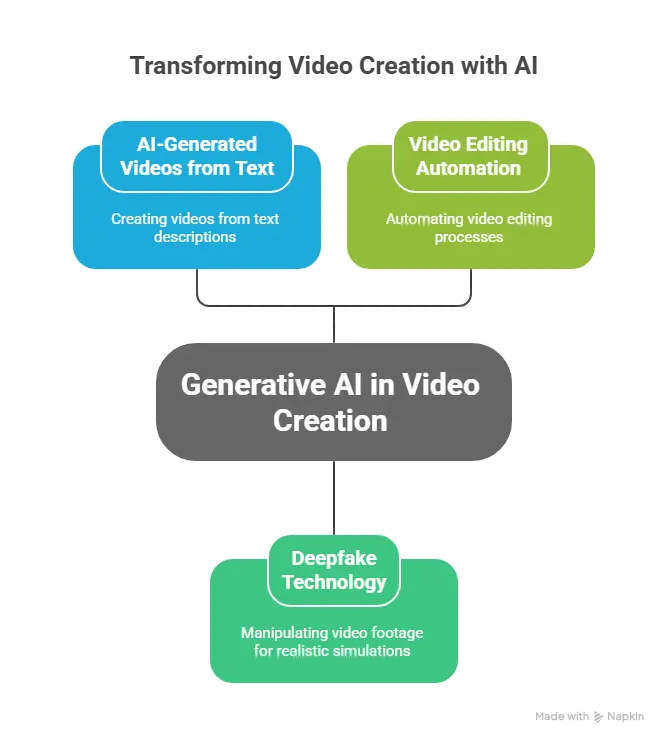In the ever-evolving world of digital content creation, one of the most groundbreaking advancements has been the emergence of Generative AI. This technology is revolutionizing the way we create images and videos, offering new possibilities for both professionals and businesses. Through its capacity to generate high-quality media from minimal input, Generative AI is setting a new standard in creative industries. But how exactly does Generative AI help in automated video and image creation? Let’s delve deeper into this question and understand its practical applications, impact, and future potential.

Understanding Generative AI in the Context of Media Creation
Generative AI refers to algorithms that can generate new content, such as images, videos, music, or even text, based on a given set of data. This AI technology works by analyzing a massive dataset to understand patterns, structures, and other characteristics, allowing it to create something new yet recognizable and aligned with the given input.
In the realm of video and image creation, Generative AI can automate the production of visuals, often with minimal human intervention. By using techniques like Generative Adversarial Networks (GANs), Variational Autoencoders (VAEs), and neural networks, AI can now generate photorealistic images and videos from scratch or manipulate existing media in ways that were once unimaginable.
The Role of Generative AI in Automated Image Creation
In the past, creating high-quality images required skilled designers and photographers. However, with Generative AI, this process has become faster, more efficient, and more accessible.

-
AI-Driven Image Generation:
Generative AI models can create entire images from scratch. By learning from vast datasets of photos, AI can generate images that replicate real-world visuals or produce entirely new concepts. For example, AI models such as DALL-E 2 by OpenAI can create images from text descriptions, like “a sunset over a futuristic city,” offering a level of flexibility and creativity never before possible. -
Image Enhancement:
AI can enhance the quality of images through processes like upscaling, denoising, and color correction. This feature is particularly beneficial in industries like e-commerce and advertising, where visual content needs to meet high-quality standards quickly and cost-effectively. -
Content Personalization:
One of the most notable applications of Generative AI in image creation is its ability to personalize content. AI can tailor images based on specific user preferences, demographic data, or even individual tastes. This has become a powerful tool for industries like digital marketing, where personalized imagery is a key factor in boosting engagement.

The Impact of Generative AI in Automated Video Creation
The video creation process, which traditionally involved camera equipment, editing software, and expert knowledge, is undergoing a transformation thanks to Generative AI. The AI’s ability to automatically generate high-quality video content has profound implications for various sectors, from entertainment to education.

-
AI-Generated Videos from Text:
Similar to its application in image creation, Generative AI can also create videos from text descriptions. AI tools like Runway ML are capable of turning written prompts into moving images, enabling content creators to generate promotional videos, training materials, and visual narratives with little more than a few sentences of input. -
Deepfake Technology:
While controversial, Deepfake technology powered by Generative AI is making significant strides. Deepfake allows for the manipulation of video footage, where the AI can place a person’s face or voice in existing video content, creating realistic simulations. This technology is widely used in film production, gaming, and social media but also raises ethical concerns about misinformation. -
Video Editing Automation:
AI models can now automate the time-consuming process of video editing. For example, Generative AI can suggest scene transitions, cut out unnecessary clips, and even match video content to the chosen audio. This reduces the time and effort required for video production, making it more accessible to businesses, content creators, and marketers.
Real-World Applications of Generative AI in Video and Image Creation
1. E-Commerce and Product Visualization:
Generative AI plays a pivotal role in product marketing, especially in e-commerce. AI-generated product images and videos allow businesses to display their products in diverse settings without the need for costly photo shoots. For instance, AI can generate an image of a product in a variety of environments or styles, making it easier to market the same product to different demographics.
2. Entertainment Industry:
The entertainment industry has been one of the primary beneficiaries of Generative AI, particularly in creating visual effects and animation. AI has made it possible for animators to generate realistic human characters and background scenes in record time, enhancing production efficiency.
3. Healthcare and Medical Imaging:
Generative AI has found applications in medical imaging for tasks like enhancing the quality of medical scans, generating synthetic medical images, or even predicting potential diseases based on AI-created visuals. This reduces the reliance on traditional imaging methods and speeds up diagnostics.
4. Social Media and Marketing:
Social media platforms are leveraging Generative AI to automate the creation of engaging images and videos. Brands can now automatically generate posts, promotional videos, and ads tailored to their audience’s preferences, all with minimal effort.

How Generative AI is Shaping the Future of Content Creation
-
Cost Efficiency:
Generative AI dramatically reduces the cost of producing high-quality media content. With automated systems generating images and videos, businesses can save on production costs and human resources, resulting in lower operational expenses. -
Faster Turnaround Times:
The ability of AI to quickly generate media allows businesses to meet tight deadlines. Instead of waiting for lengthy photo shoots or video edits, companies can create content on demand, helping them stay competitive in fast-paced industries. -
Creative Freedom:
Generative AI empowers artists and creators by offering them new avenues for creativity. By generating content that was previously unimaginable, AI allows creators to push the boundaries of their work without technical limitations. -
Scalability:
Generative AI allows content creators to scale their production without increasing their workforce. One AI model can generate thousands of pieces of content, making it an essential tool for businesses looking to expand their reach with minimal overhead.
Frequently Asked Questions (FAQs)
-
What is Generative AI in image and video creation?
-
Generative AI refers to algorithms that create new images, videos, or content based on learning from large datasets. These models can generate entirely new media or modify existing content with minimal human input.
-
-
How does Generative AI create images from text?
-
AI models like DALL-E 2 use text prompts to generate images by interpreting the input and then synthesizing visuals based on learned patterns from vast image datasets.
-
-
Can AI create videos from text descriptions?
-
Yes, AI tools like Runway ML allow users to generate videos from written prompts by using advanced models that simulate motion, lighting, and background scenes.
-
-
What industries benefit from Generative AI in media creation?
-
Industries such as e-commerce, healthcare, entertainment, and digital marketing are seeing significant benefits from AI-driven media creation.
-
-
Is AI-generated content ethical?
-
While AI-generated content offers many benefits, there are ethical concerns, especially around the use of deepfakes and misinformation. It’s essential to use AI responsibly and follow legal guidelines.
-
Resource Center
These aren’t just blogs – they’re bite-sized strategies for navigating a fast-moving business world. So pour yourself a cup, settle in, and discover insights that could shape your next big move.
How the New AI-Assisted Skills Feature Empowers Developers to Architect Smarter Systems?
In today’s rapidly evolving digital landscape, developers face intense pressure to build complex applications faster while maintaining high standards of reliability, performance, and scalability. Traditional development methodologies are being [...]
AI-Assisted Development vs Vibe Coding: What Truly Scales in Production?
The rise of generative AI tools has transformed modern software development. From auto-completing functions to generating entire modules, AI-powered coding assistants have become part of daily workflows. Yet, not [...]
What OpenClaw Doesn’t Tell You: The Security Risks of AI with Full System Access
Over the last few months, autonomous AI agents have moved from experimental prototypes to mainstream productivity tools. Among them, OpenClaw has emerged as one of the most talked-about open-source [...]

